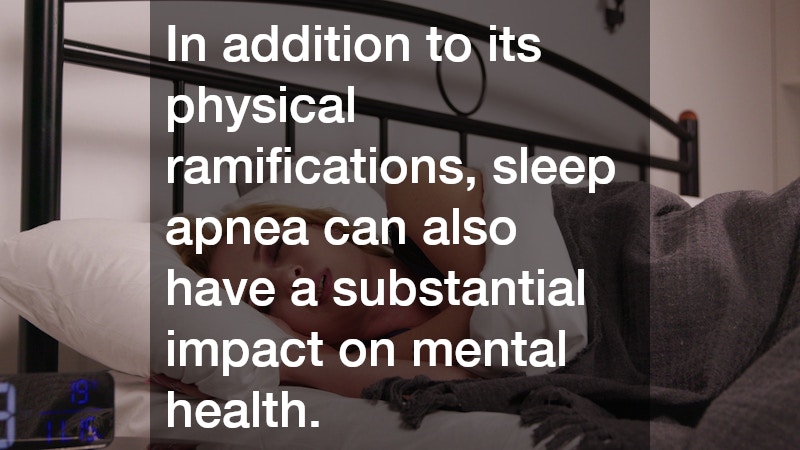How Sleep Apnea Treatment Improves Your Health (and Why Treatment Is Essential)
Sleep apnea is a common yet serious sleep disorder that affects millions of people worldwide. Characterized by repeated interruptions in breathing during sleep, this condition can have severe repercussions for both physical and mental health. Untreated sleep apnea can lead to various health complications, including cardiovascular diseases, diabetes, and impaired cognitive function.
Understanding the importance of addressing this condition can significantly improve the quality of life for those affected. In this blog post, we’ll explore how sleep apnea treatment can enhance health and why seeking treatment is essential.
One of the most immediate benefits of treating sleep apnea is an improvement in sleep quality. Those suffering from untreated sleep apnea often experience fragmented sleep due to frequent awakenings caused by a lack of oxygen. This disrupted sleep can lead to excessive daytime sleepiness, reduced alertness, and lower productivity. Treatment options such as Continuous Positive Airway Pressure (CPAP) therapy can help maintain open airways throughout the night, ensuring more restful and uninterrupted sleep. By addressing the root of the disruption, patients often find themselves feeling more refreshed and energetic throughout the day.
Cardiovascular health is another crucial area that benefits from sleep apnea treatment. Untreated sleep apnea has been linked to an increased risk of high blood pressure, heart attack, stroke, and other cardiovascular complaints. This is because the frequent oxygen deprivation events strain the cardiovascular system, leading to long-term damage. Treatment not only alleviates these breathing interruptions but also helps normalize blood pressure and reduce stress on the heart. This reduction in cardiovascular strain can significantly lower the risk of developing life-threatening heart conditions and improve overall heart health.
In addition to its physical ramifications, sleep apnea can also have a substantial impact on mental health. Chronic sleep disruption has been associated with mood disorders such as depression and anxiety. Individuals with untreated sleep apnea often report mood swings, irritability, and cognitive difficulties, which can affect personal and professional relationships. Effective treatment of sleep apnea can lead to improved mental clarity, better concentration, and enhanced emotional wellbeing. With better sleep comes a more balanced mood and sharper cognitive function.
Moreover, weight management can also benefit from treating sleep apnea. Sleep deprivation is known to disrupt hormones that regulate appetite and metabolism, which can lead to weight gain and difficulty losing weight. By treating sleep apnea and restoring a healthy sleep pattern, these hormonal disruptions are minimized. This can aid those who are struggling with obesity in their weight loss efforts, thus creating a positive cycle of health improvement. Additionally, weight loss can further alleviate sleep apnea symptoms, promoting even better sleep and health outcomes.
It’s essential to note that ignoring sleep apnea can have dire consequences. Without treatment, individuals are at a higher risk for accidents due to impaired alertness, such as car crashes, which can pose serious risks to oneself and others. In fact, untreated sleep apnea significantly increases the risk of a vehicle accident by up to five times. Furthermore, addressing sleep apnea not only prevents these dangers but also enhances overall quality of life, increasing longevity and vitality. The improvements in sleep, cardiovascular health, mental health, weight management, and safety make a compelling case for seeking timely treatment.
In conclusion, sleep apnea is a pervasive sleep disorder with far-reaching health implications if left untreated. Fortunately, effective treatments are available that can dramatically enhance a person’s quality of life. From better sleep quality to improved cardiovascular and mental health, the benefits of treatment are numerous and substantial. By understanding the importance of addressing this condition, those affected by sleep apnea can take proactive steps to improve their health and well-being. Prioritizing treatment is not just a step towards better sleep; it’s a commitment to a healthier, happier life.






